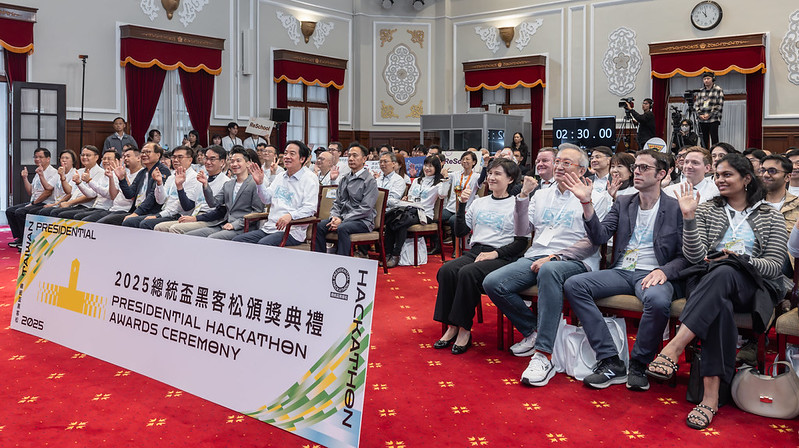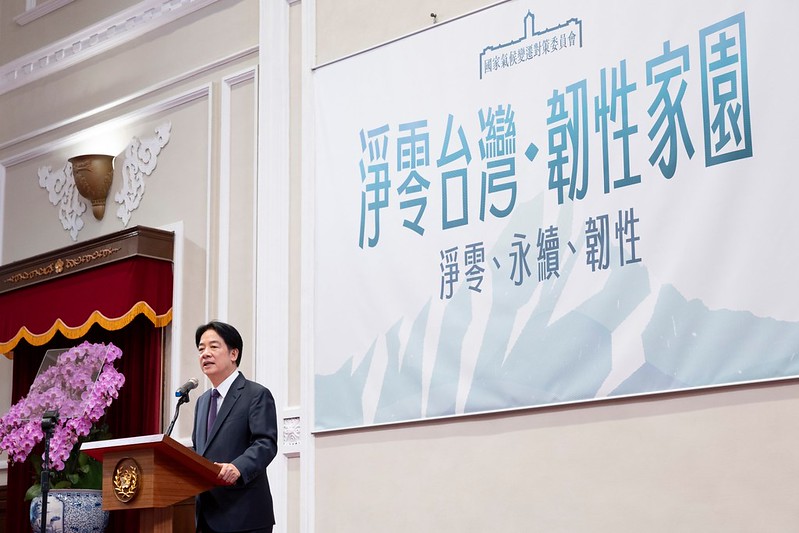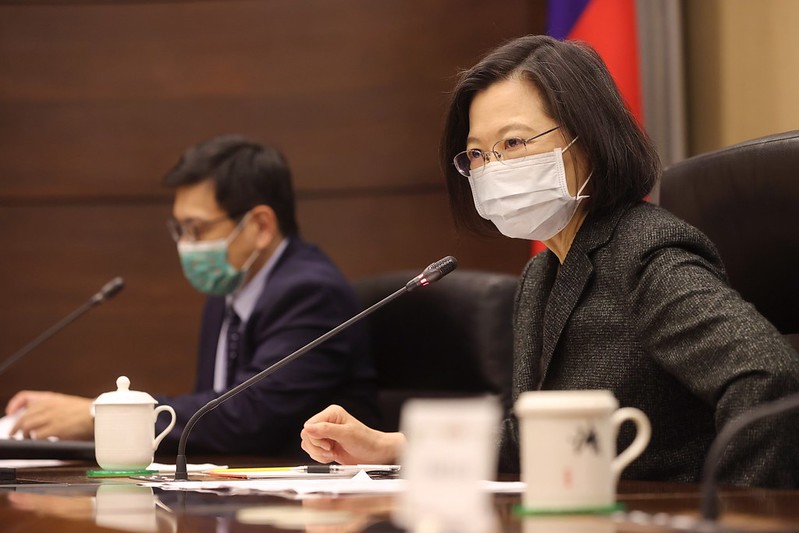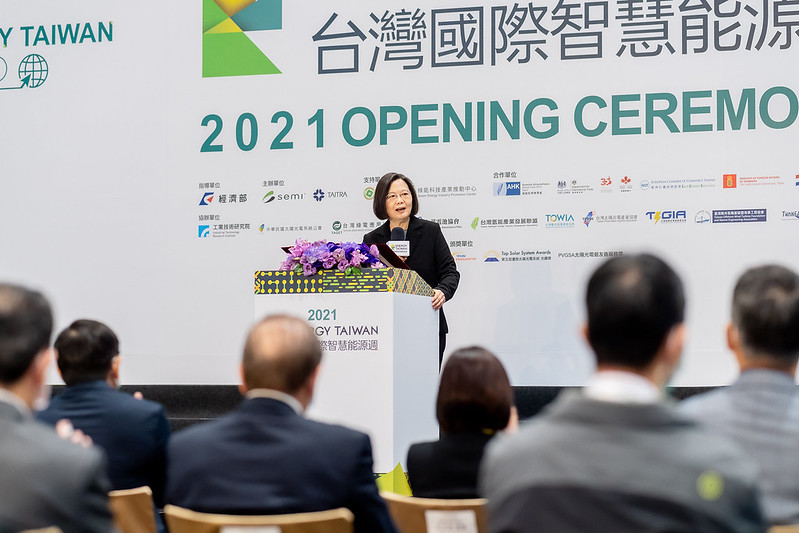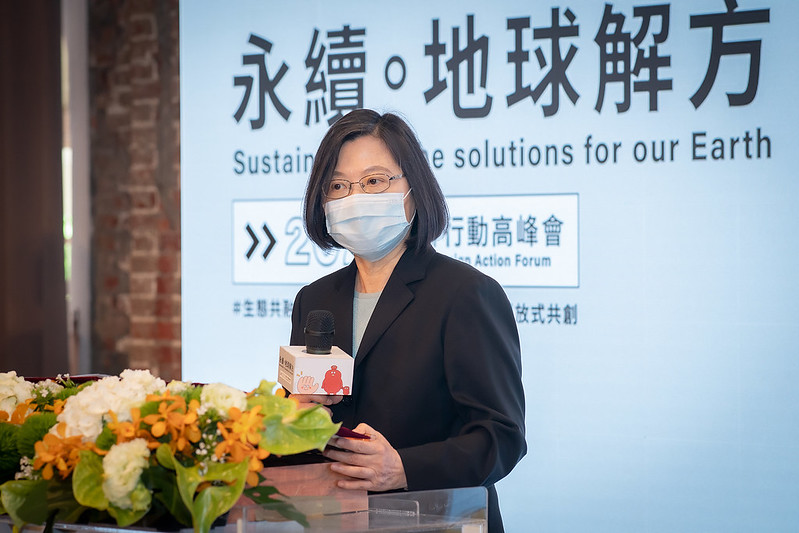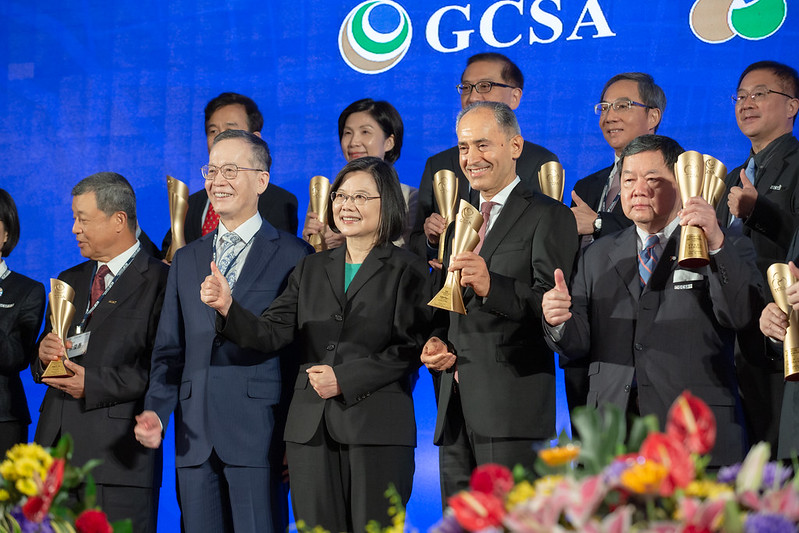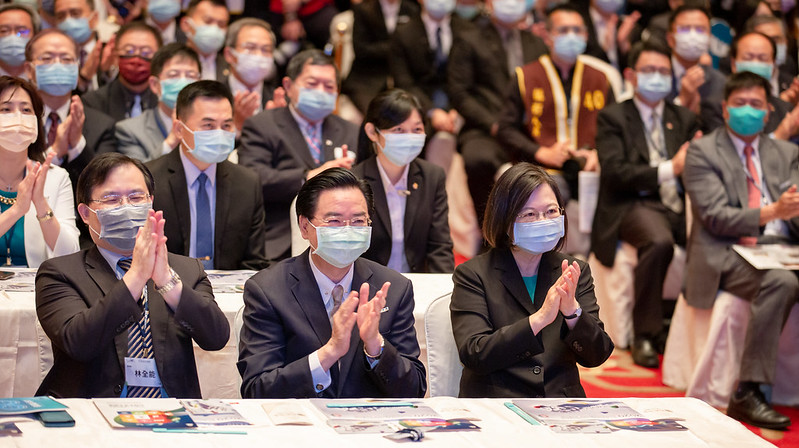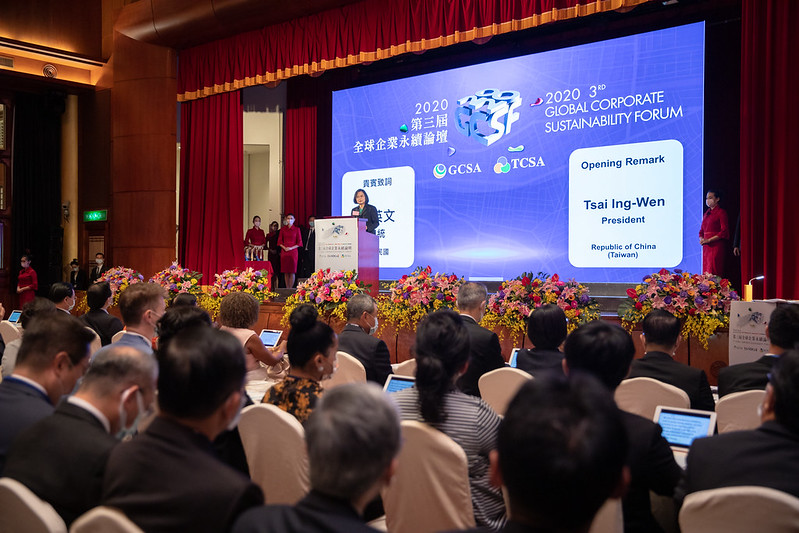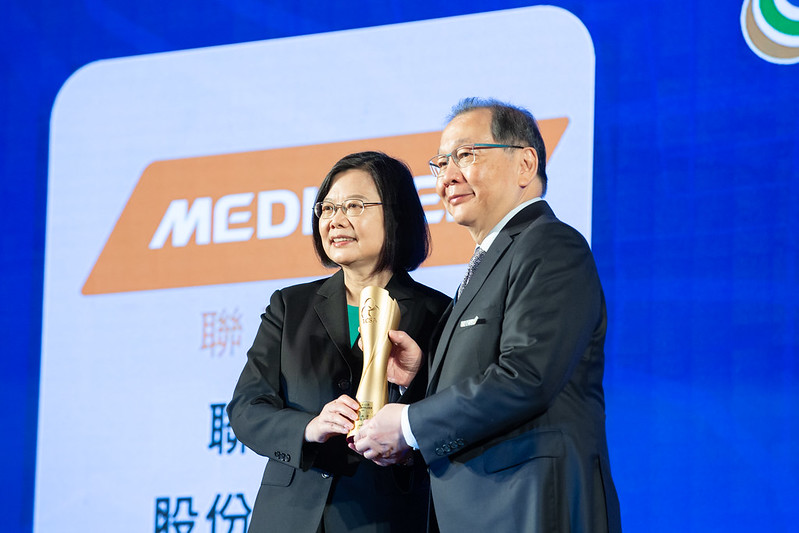News & activities
 News releases
News releases
President Tsai Ing-wen attended the Third Global Corporate Sustainability Forum and Taiwan Corporate Sustainability Awards ceremony on the morning of November 18. She explained the government's sustainable development policies, and expressed hope that government and business will learn from each other and explore the viability of various action plans together so that we can actively share Taiwan's experiences with our global partners
A translation of President Tsai's remarks follows:
I am delighted to be here for the Global Corporate Sustainability Forum with so many leading figures from the business community. First, I want to congratulate all the enterprises that have won a "Taiwan Corporate Sustainability Award" or "Global Corporate Sustainability Award." Thank you all for showing a strong sense of corporate social responsibility. I also want to thank Ambassador Eugene Chien (簡又新). Under his leadership, the Corporate Sustainability Awards are now in their 13th year, leading more and more companies to make sustainable development part of their business DNA.
In an international evaluation last year, Taiwan enterprises ranked third in the world for Environment, Social & Governance (ESG) information disclosure transparency. So your efforts have produced excellent results.
Over the last three years the Alliance for Sustainable Development Goals, jointly founded by the government and private sector, has not only presented "Global Corporate Sustainability Awards" to enterprises around the world. It has also created Asia's largest corporate sustainability forum. In spite of COVID-19's impact this year, our success in containing the pandemic has allowed us to hold this important platform for international exchange.
Everyone's efforts complement Taiwan's key international development strategies. To address the current global pandemic, we have put the "Taiwan Can Help" spirit into practice by providing disease prevention materials and sharing our disease prevention experience. And we should also contribute our capabilities and experience to address post-pandemic global challenges like climate change, and economic and social transformation.
Of course, to contribute to the world, first we have to keep improving ourselves. Over the past few years, the government began by consulting the United Nations Sustainable Development Goals to continuously make sustainable development one of our key policy implementation goals. Through the adoption of our "Taiwan Sustainable Development Goals," we have mapped out national sustainable development policy directions and established the corresponding targets.
We have also included key industries such as green energy and the circular economy in our "5+2 Innovative Industries Program" and "Six Core Strategic Industries" initiative to encourage enterprises to use clean renewable energy. This will enable them to adopt sustainable development values in the process of industrial upgrading and transformation.
The government also hopes to give enterprises even more encouragement to focus seriously on sustainable development. So beginning in August this year, we launched the "Green Finance Action Plan 2.0" and "Corporate Governance 3.0—Sustainable Development Roadmap." These initiatives draw on the power of financial institutions to encourage enterprises to apply Responsible Investment principles as they influence supply chains and consumers, and thereby work together to contribute to sustainable development.
We are also sharing our experiences with international partners. Early this month, for example, representatives from Taiwan, the United States, Japan, and the Netherlands exchanged circular economy and marine conservation experiences through the Global Cooperation and Training Framework. These examples show that Taiwan has done a lot in the field of sustainable development, and we want to continue and do even more. More important, we want to bring the "Taiwan Can Help" spirit to global sustainable development issues.
Recently, many countries have been giving careful consideration to linking their green policies in response to climate change and post-pandemic economic stimulus measures with sustainable development goals to create a "green stimulus" effect. I hope that the "Global Corporate Sustainability Forum" will give government and business a chance to learn from each other and explore the viability of various action plans together. We can also actively share Taiwan's experiences with our global partners.
Once again, I want to thank everyone here today for your efforts to promote sustainable development. Let's join forces and continue to make even greater contributions to Taiwan and the world.
Following her remarks, the president personally presented the awards to the representatives from award-winning enterprises, recognizing their efforts to achieve sustainable development.
Also in attendance were Minister of Foreign Affairs Joseph Wu (吳釗燮), Vice Minister of Economic Affairs Lin Chuan-neng (林全能), Financial Supervisory Commission Vice Chairperson Hsu Yung-chin (許永欽), Alliance for Sustainable Development Goals Chairperson Ambassador Eugene Chien, and Head of the European Economic and Trade Office Filip Grzegorzewski.
